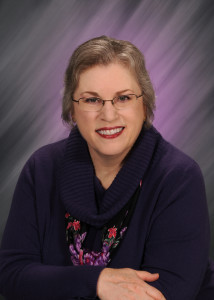Novels are all about conflict, and the main conflict in a romance novel is “how will this hero and heroine overcome their differences and difficulties to live together happily ever after?” But the story is much more interesting if the hero and heroine have additional goals that seem impossible for them to accomplish.
For my latest novel, A Proper Companion, from Harlequin’s Love Inspired Historicals, my hero is a British cavalry officer who has been wounded in the American war in 1814 and sent home to England to recover. Major Edmond Grenville has served admirably in His Majesty’s Dragoons, but he no long wants to be in the army. Instead, he wants to sell his commission and become a barrister (a kind of lawyer). Simple, right? So where is the conflict?
Such a drastic change in occupation requires some sort of training. Today Edmond would return to college for an undergraduate degree, then go to law school. Along the way, he would take out student loans to finance his education. If he wished, he could marry and begin his family. After graduating, he would have to pass the state bar exam. Then he would work with experienced lawyers, hopefully in a prestigious firm, until he could gradually begin taking his own cases.
In 1814 England, the path to becoming a lawyer was a bit more challenging. No student loans were available, so a man had to depend upon family to fund his future. Unfortunately for my hero, his mother, the formidable Dowager Viscountess Greystone, chose the military for him, and she is not pleased that he wants to leave it. Of course she will refuse to sponsor him. His eldest brother, Viscount Greystone, is sympathetic, but his funds are tied up in the war against Napoleon. So Edmond has much to overcome, many conflicts to resolve. And all the while, he hopes to marry the heroine, who has her own set of problems to deal with.
Still, Edmond is not without some advantage. Before entering the army, he attended Oxford for several years, so he already has some education. Now he needs to find a wealthy patron to support him. In those days, an aristocrat simply did not go out and get a job to support himself. (That’s a whole other discussion.) And because no formal law schools exist in this era, Edmond must find an established barrister to sponsor him at the Inns of Court in London.
The Inns of Court were a cluster of building in London near Parliament where barristers lived, trained, and worked in their profession. (Wikipedia has more information at http://en.wikipedia.org/wiki/Inns_of_Court.) Once accepted, Edmond will live among these barristers and “read law” for six or seven years in his sponsor’s chambers. During this time, he will “eat his dinners” with the older barristers. This means he will spend time actually eating dinner with them, learning from them, and trying to impress them with his own understanding of the law. At last, if he passes their approval, he will be called to the bar and begin to argue cases.
While this may seem like an easy path, remember that without a financial backer and a sponsor, Edmond has little chance to achieve his goal. At this time in England, many aristocratic soldiers were returning home and competing for the same positions. So how does my hero manage to overcome the seemingly insurmountable path to happiness in a career and, more important, in love? I hope you will read A Proper Companion to find out.


Leave a Reply